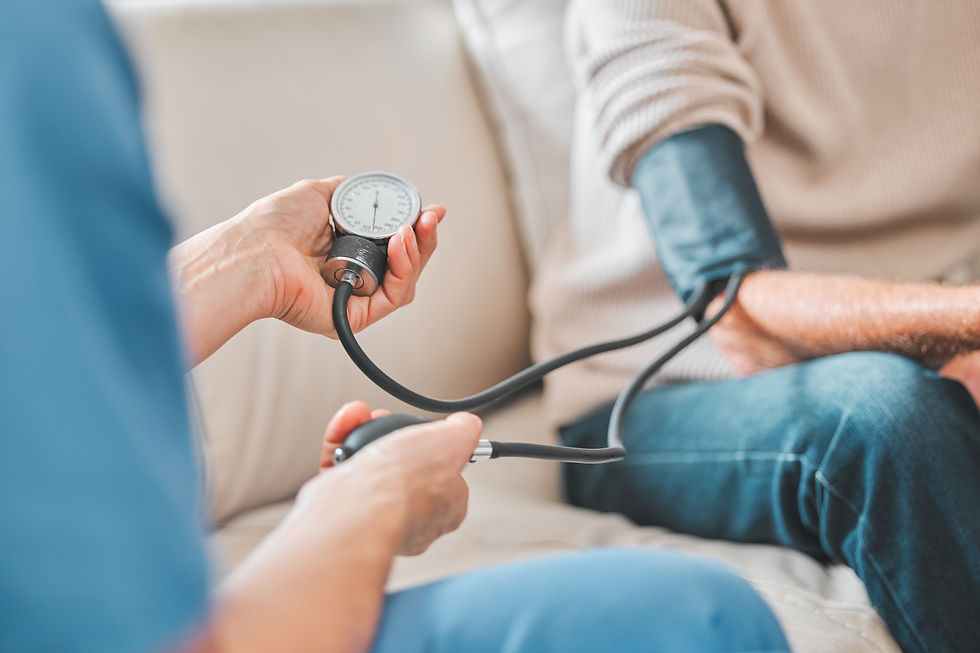Understanding and managing high blood pressure: When to visit urgent care
- Jovin Richard
- Feb 5, 2025
- 2 min read
High blood pressure is often called the "silent killer" because it shows no symptoms until it becomes a serious health risk. If you’re experiencing unusual symptoms or have concerns about your blood pressure, understanding when to seek help is key.

What is High Blood Pressure?
High blood pressure, also known as hypertension, occurs when the force of blood against the walls of your arteries is consistently too high. This condition can strain your heart, blood vessels, and organs, leading to long-term health complications like heart disease, kidney damage, or stroke.
Why is High Blood Pressure Dangerous?
High blood pressure is often referred to as a "silent" condition because many people don’t experience obvious symptoms. However, when left unmanaged, it can lead to serious health issues. Persistent high blood pressure can damage your arteries, leading to reduced blood flow and putting a strain on vital organs.
Symptoms of High Blood Pressure
While high blood pressure often shows no warning signs, some people may experience:
Severe headaches
Shortness of breath
Chest pain
Dizziness or lightheadedness
Vision problems
If you experience any of these symptoms, it’s essential to seek medical attention promptly to assess your condition.
When Should You Visit Urgent Care for High Blood Pressure?
If you’re dealing with any of the following scenarios, it may be time to visit urgent care for an evaluation of your blood pressure:
Elevated Blood Pressure ReadingIf your blood pressure readings are consistently over 180/120 mmHg, this is considered a hypertensive crisis and requires immediate medical attention.
Unexplained SymptomsIf you’re experiencing symptoms like severe headaches, dizziness, or chest pain, it’s crucial to get checked out right away.
Difficulty Managing Blood PressureIf you have been diagnosed with high blood pressure but find it challenging to manage, urgent care can help assess your current situation and guide you toward effective strategies for improvement.
Sudden Onset of SymptomsIf your symptoms suddenly worsen or you experience new issues that you haven't faced before, don’t hesitate to seek medical attention at an urgent care center.
How Urgent Care Can Help
At Rapid Care Center, we provide prompt and thorough care for those experiencing high blood pressure concerns. Our team of healthcare professionals can assess your symptoms, take blood pressure measurements, and offer advice on managing your condition. In some cases, we may recommend further tests or referrals to specialists for more in-depth care.
Managing High Blood Pressure Long-Term
Managing high blood pressure involves lifestyle changes, including:
Eating a balanced, low-sodium diet
Getting regular exercise
Limiting alcohol and caffeine intake
Managing stress
Taking medications as prescribed by your doctor
Implementing these healthy habits can significantly lower your risk of developing complications related to high blood pressure.
When to Visit Rapid Care Center
If you're experiencing concerning symptoms related to high blood pressure, don't wait. Visiting urgent care can help prevent more serious complications. If you are in the Kirkland area, Rapid Care Center offers immediate care and expert advice. Contact us today at 425-899-2525 or schedule an appointment online to get the care you need.





Comments